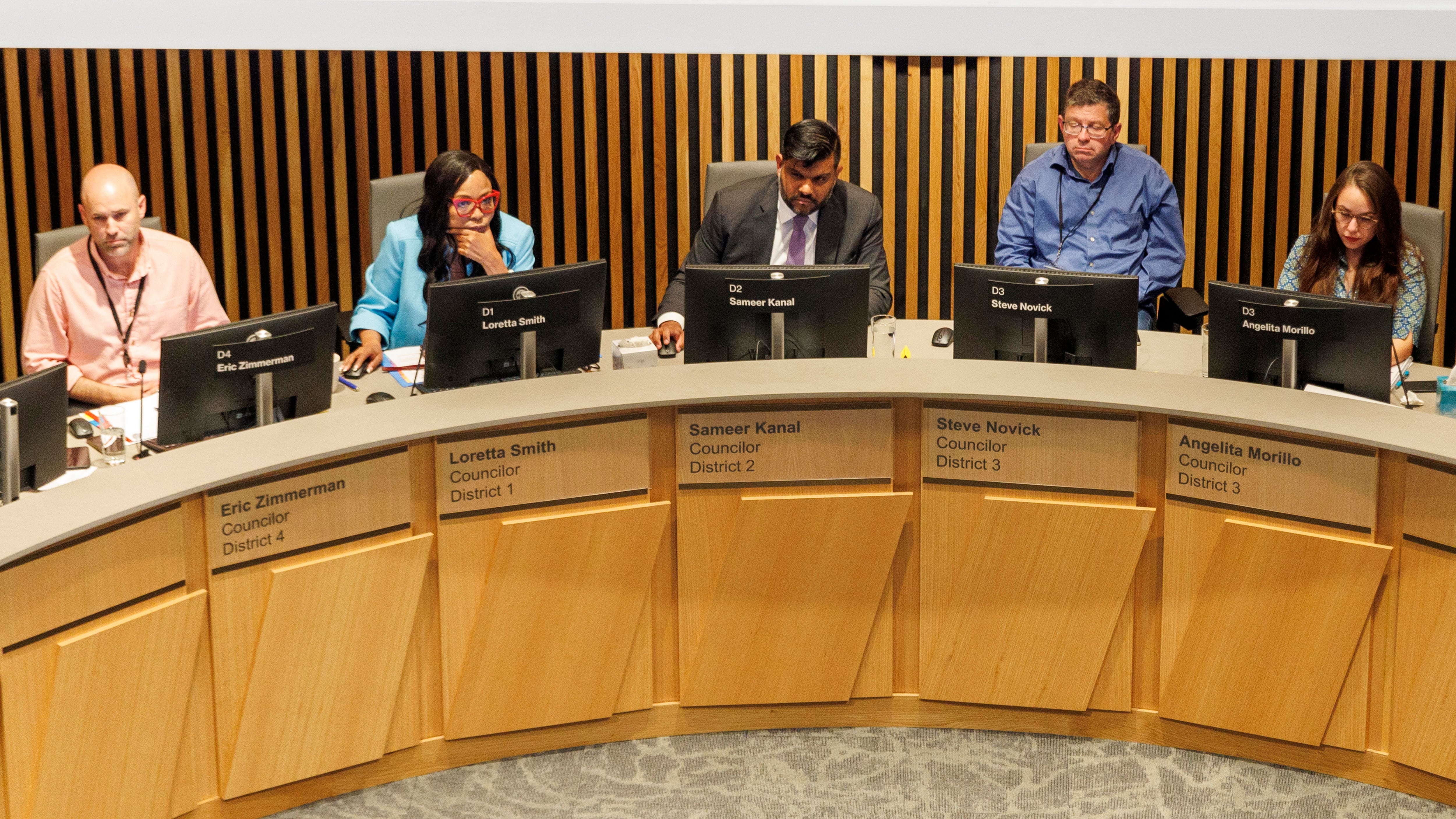Portland City Attorney Robert Taylor made no determination of fault in response to grievances received by his office alleging that six members of the City Council’s progressive caucus had violated public meetings laws in a message thread obtained and revealed by WW earlier this month.
Taylor issued the statement today in response to a handful of complaints his office received following WW’s two stories about the contents of the chat, in which the six “Peacock” councilors coordinated votes in real time on the dais during budget meetings. Taylor made no determination that any of the councilors had violated the state’s public meetings law.
Taylor did write that the complaints raised “important concerns” and that “the City Attorney’s Office will use this as a critical opportunity for additional training for our City Council,” but stopped short of addressing the allegations directly.
The Oregon Government Ethics Commission, which investigates alleged violations of public meetings law, received 12 complaints about the Peacock chat after WW’s stories earlier this month.
But on Aug. 7, in response to questions about those complaints, OGEC director Susan Myers told WW that all complaints about the chat would be tossed out because the messages in question were more than 30 days old. A complaint about public records violations must be submitted within 30 days of the alleged violation; the last message captured in the Peacock chat is dated June 26.
Taylor wrote to complainants, in letters obtained by WW through a records request, that “since the grievances were not timely under state law, no additional action is required by the city.”
Taylor used the letter to point out faults in the state’s new public meetings law that apply to local government bodies only. The Oregon Legislature passed those laws in 2023, and they took effect at the beginning of the year. The new provisions ban “serial communications,” or subsequent communications that could in effect string together a quorum. Some councilors say the new provisions have hamstrung councilors’ ability to communicate with one another about policy.
“The fact that the new form of government is being implemented at the same time the Ethics Commission is beginning to implement the new serial communications rules further enhances the challenges faced by the city of Portland,” Taylor wrote to complainants. “There is perhaps a real need for the Legislature to take action to provide clarity to local governments, the Ethics Commission, and the public.”

